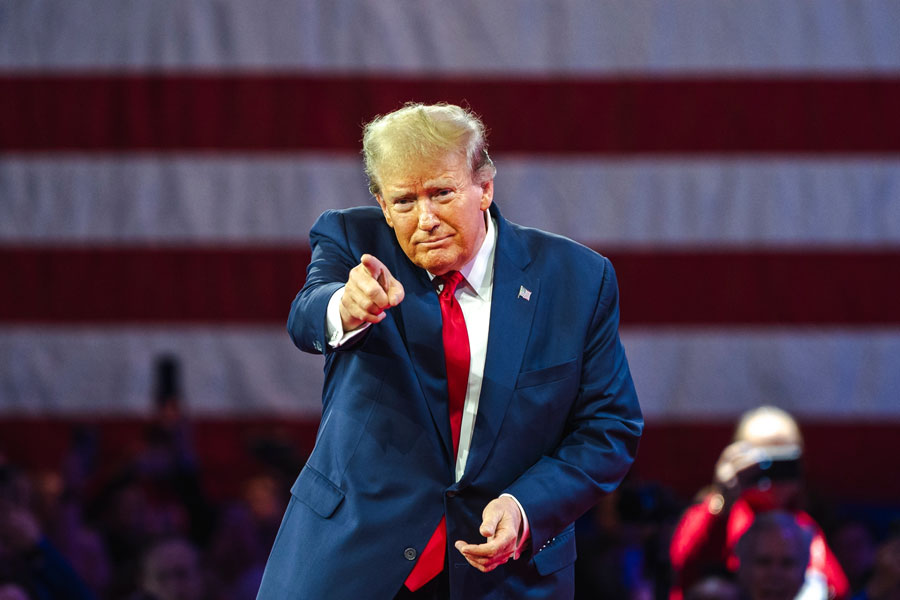
NEW YORK, NY – President Donald Trump’s recent implementation of comprehensive tariffs has elicited varied responses both domestically and internationally. A DailyMail.com/J.L. Partners poll conducted from March 31 to April 3, 2025, indicated that President Trump’s approval rating rose to 53%, a 4-point increase from the previous week.
This uptick coincided with the announcement of new tariffs. Notably, the poll highlighted a 17-point surge in approval among Black voters and a 13-point increase among voters aged 18 to 29. Additionally, there was a six-point rise in favorability among both Democrats and independents
The DailyMail.com/J.L. Partners survey revealed that 36% of respondents supported the newly proposed 10% tariff on all imported goods, while 28% opposed it, and 36% remained uncertain. Support for increased tariffs targeting specific regions, such as China and the European Union, also saw an uptick. Industries including aircraft, plastics, precious metals, iron, and steel received notable backing for targeted tariffs.
Internationally, the tariffs have prompted varied reactions. Argentine President Javier Milei expressed alignment with President Trump’s trade policies. During a visit to Florida, Milei announced that Argentina is adjusting its regulations to meet the requirements of the U.S.’s reciprocal tariff proposals. He stated that Argentina has already implemented nine of the sixteen necessary adjustments.
In contrast, other nations have responded with concern. The European Union proposed lowering car tariffs and increasing purchases of U.S. energy and military equipment in an attempt to negotiate exemptions. Japan pledged to import more liquefied natural gas and invest in artificial intelligence, yet still faced a 24% tariff. Despite these efforts, no exemptions have been granted, leading to increased economic volatility and significant stock market declines.
The global economic landscape remains uncertain as countries navigate the implications of the U.S.’s new tariff policies. While some nations seek to negotiate favorable terms, others brace for potential economic challenges stemming from the escalating trade tensions.


